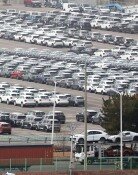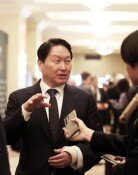[Opinion] A Balanced View of Modern History
[Opinion] A Balanced View of Modern History
Posted January. 09, 2005 22:52,
A few days ago, I saw a TV quiz program, which dealt with events of the past. The contenders had to answer questions like: In the 1950s and 60s when the superior baby contest was held, what were the standards of the contest other than weight, or in the 1960s when there was police enforcement of women wearing short skirts and long haired men, how the police measured the length of skirts and hair. These days, obesity is regarded as a public enemy, and people enjoy freedom to wear whatever they want. People now would consider those old events not just as amusing, but as bizarre. Many TV programs have looked back on the 1960s with a similar attitude, and I usually just smiled to see them. However, I do not feel comfortable at such programs any more, maybe because I do not like the social atmosphere in which people regard the past only as something to be overcome.
Recently, I had a chance to visit Kaesung Industrial Complex in North Korea. It was touching to see peoples efforts to promote interchange between North and South Korea in this cold and desolate plain. Seeing the bare mountains, however, I became heavy-hearted because they reminded me of the mountains of South Korea in the 1950s. The Food and Agriculture Organization of the U.N. once selected South Korea, Germany, the U.K. and New Zealand as the four most successful countries in reforestation. South Korea was especially considered as an unprecedented example of successful reforestation, as it recovered its devastated forests nationwide in just a few decades. This is one of the great achievements of Park Jeong-hee administration in the 1960s.
Korea is currently involved in wars on history. Koreans protest against Chinas attempt to steal the history of the ancient Korean kingdom of Koguryo, and Japans history textbooks that distort facts about its colonial rule of Korea. However, are Korean people ready for these wars? For example, some Koreans see only the harsh human rights suppression in the era of the Park Jeong-hee administration. Others emphasize only economic development and modernization. Such attitudes towards history prevent people from seeing both the light and the shade, and how they composed this era together. Korean people are distorting their own history.
Recently, some scholars of humanities and social science embarked on research and publishing books to see modern history objectively. I hope this occasion can serve as an opportunity for both industrialists and democratization activists to become humble, see history with both eyes, and recover their sense of balance.
Park Myong-jin, guest editorial writer and professor at Seoul National University, Department of Journalism and Mass Communications. mjinpark@snu.ac.kr







